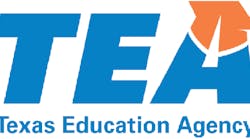A U.S. Department of Education investigation says that Texas has violated federal law by failing to ensure students with disabilities were properly evaluated and provided with an adequate public education.
The Texas Tribune reports that the federal investigation found that the Texas Education Agency (TEA) in effect capped the statewide percentage of students who could receive special education services and incentivized some school districts to deny services to eligible students.
The federal education department directed Texas to take several corrective actions: produce documentation that the state is properly monitoring school districts’ evaluations for special education; develop a plan and timeline to ensure that each school district will evaluate students previously denied needed services; and create a plan and timeline for the Texas Education Agency to provide guidance to educators on how to identify and educate students with disabilities.
“Far too many students in Texas had been precluded from receiving supports and services under [the Individuals with Disabilities Education Act],” U.S. Secretary of Education Betsy DeVos said in a statement.
In response to the report, Gov. Greg Abbott sent a letter to TEA Commissioner Mike Morath demanding that TEA prepare an initial plan to reform special education within the next seven days. He also told the TEA to develop legislative recommendations to help ensure districts comply with federal and state special education laws.
[Read a statement from TEA commissioner Mike Morath.]
Legislators passed a law in May prohibiting Texas from capping special education services. Special education advocates and parents had lobbied for a number of smaller reform bills during the session, few of which passed.
Morath says he will continue to increase training and support for educators on educating students with disabilities.
“We have added significant resources focused on increasing technical assistance and training for our school systems, including 39 statewide special education support staff in the last year," he says. "I am committing today that there will be more."
The federal investigation was prompted by reports in The Houston Chronicle alleging TEA had denied needed special education services to thousands of students with disabilities across the state. Texas provides special education to a small percentage of students compared with other states. That number has gone up from 8.5 percent in 2015-16 to 8.8 percent last school year, according to TEA's statewide academic performance report.
TEA has denied allegations that it capped services for students.
The federal report found that the TEA was more likely to monitor and intervene in school districts with higher rates of students in special education; this resulted in a statewide system that incentivized denying services to eligible students. School district officials said they expected they would receive less monitoring if they served 8.5 percent of students or fewer.
It also found that school administrators provided some students suspected of having disabilities with intensive academic support as a way of delaying or refusing to evaluate them for necessary federally funded special education services.
Many school district staff members said they saw evaluation for federally funded special education services as a “last resort” for students who were struggling to learn. They did not understand that students could receive these services in both special education and general education classrooms.
The TEA's attempts to address some of these problems suffered a setback recently after it awarded a contract to overhaul special education to a company with a short track record without letting other firms bid for the job. After parents of students with disabilities argued the contract was poorly thought out, Morath terminated it — with $2.2 million in federal funding already spent for services rendered.
Texas now lacks both a special education director and a long-term plan for overhauling special education, leaving parents and advocates frustrated and concerned.


